1989 Toyota Pickup Repair, Service & Tires
Get Started
Complete Auto Care for Your 1989 Toyota Pickup
-
TIRES FOR YOUR 1989 Toyota Pickup View Tire Info GET TIRE PRICING
-
REPAIR FOR YOUR 1989 Toyota Pickup View Repair Info SCHEDULE REPAIR
-
MAINTENANCE FOR YOUR 1989 Toyota Pickup View Maintenance Info SCHEDULE MAINTENANCE
-
OFFERS FOR YOUR 1989 Toyota Pickup Limited Time Tire Offers VIEW ALL COUPONS
1989 Toyota Pickup Tires
Recommended Tires | Tire Information
1989 Toyota Pickup Tires Sizes, Speed Ratings, and Inflation
Not sure about your 1989 Toyota Pickup tire size? Use the following chart to find information on tire size, speed rating, and inflation.
| Trim Level | Speed Rating | Inflation in PSI F/R | Tire Size |
|---|---|---|---|
| 1989 Toyota Pickup Base* | None | 29 PSI/65 PSI | 185R14LT/8 |
| 1989 Toyota Pickup Base* | None | 26 PSI/29 PSI | P225/75R15 |
| 1989 Toyota Pickup Base* | None | 30 PSI/35 PSI | P195/75R14 |
| 1989 Toyota Pickup Base* | None | 30 PSI/35 PSI | P205/75R14 |
| 1989 Toyota Pickup Base* | None | 29 PSI/29 PSI | 31x10.50R15LT/C |
| 1989 Toyota Pickup Base* | None | 29 PSI/35 PSI | P215/65R15 |
|
1989 Toyota Pickup Base* Speed Rating: None Inflation F/R: 29 PSI/65 PSI |
|
1989 Toyota Pickup Base* Speed Rating: None Inflation F/R: 26 PSI/29 PSI |
|
1989 Toyota Pickup Base* Speed Rating: None Inflation F/R: 30 PSI/35 PSI |
|
1989 Toyota Pickup Base* Speed Rating: None Inflation F/R: 30 PSI/35 PSI |
|
1989 Toyota Pickup Base* Speed Rating: None Inflation F/R: 29 PSI/29 PSI |
|
1989 Toyota Pickup Base* Speed Rating: None Inflation F/R: 29 PSI/35 PSI |
* Note: these models have different tire sizes depending on vehicle options.
Recommended Tires for Your 1989 Toyota Pickup
What tires are best for a 1989 Toyota Pickup? Check out the following tire brands and types.
 Destination LE3
Destination LE3
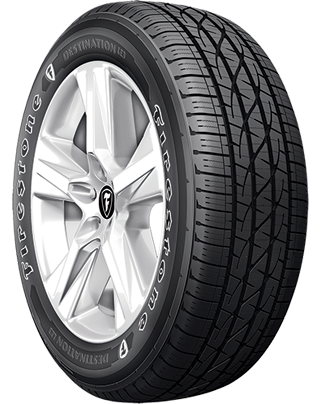
- No warranty
- All-Season
- Light Truck Tires
 Destination X/T
Destination X/T
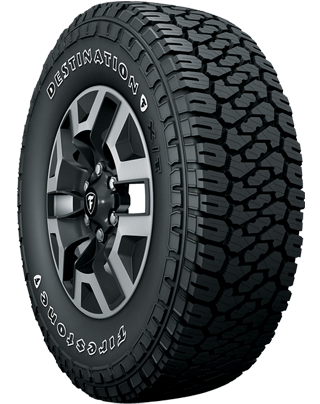
- Gold Pledge Limited Warranty
- All-Season
- Light Truck Tires
 Destination M/T2
Destination M/T2
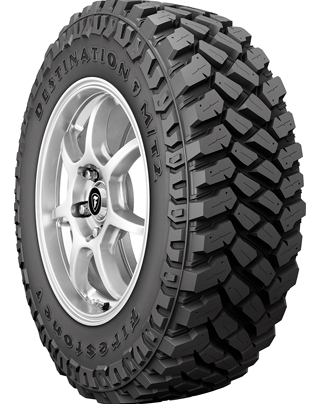
- No warranty
- All-Season
- Light Truck Tires
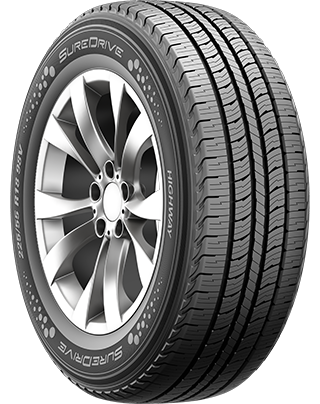
- No warranty
- All-Season
- Light Truck Tires

- No warranty
- All-Season
- Passenger Tires

- No warranty
- All-Season
- Passenger Tires
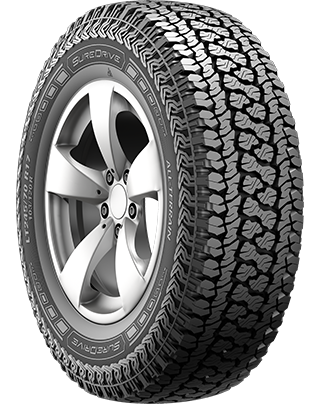
- No warranty
- All-Season
- Light Truck Tires
 Extensa A/S II
Extensa A/S II

- No warranty
- All-Season
- Passenger Tires
 OPEN COUNTRY A/T III
OPEN COUNTRY A/T III
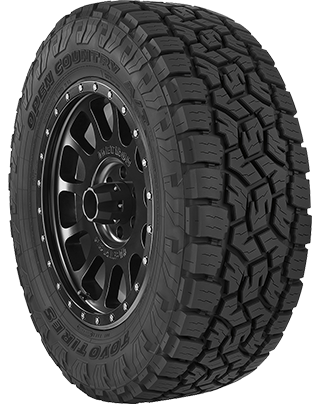
- No warranty
- All-Season
- Light Truck Tires
 OPEN COUNTRY M/T
OPEN COUNTRY M/T
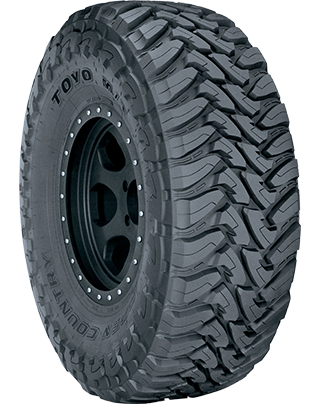
- No warranty
- All-Season
- Light Truck Tires
 OPEN COUNTRY R/T
OPEN COUNTRY R/T
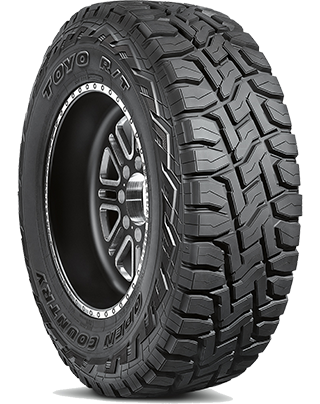
- No warranty
- All-Season
- Light Truck Tires
1989 Toyota Pickup Tire Information
Other than getting the proper tire size, there are a couple of other factors to consider when buying Toyota Pickup tires like how and where you drive, and how much you want to spend. When evaluating your driving conditions, think about where you live (countryside vs. city vs. mountains) and the kind of unexpected weather you're likely to experience. It's not uncommon for drivers in states that experience all four seasons to buy more than one set of tires. one for summer and one for winter. Other drivers prefer to purchase one all-season set to limit trips to the tire shop and make sure their vehicle is prepared in the rain, sleet, snow, or sun!
Driving style is next on the list to think about when buying tires. If you're a diehard off-roader, you have very different tire needs than a highway commuter who doesn't leave the paved path. Talk to a tire technician at Firestone Complete Auto Care for help choosing the best tire for you, or start shopping for Toyota Pickup tires online.
Toyota Pickup Installation and More
Firestone Complete Auto Care installs more tires on more cars than most other companies. We're your one-stop shop for tire installation, rotation, and ongoing maintenance! Buy 1989 Toyota Pickup tires online and schedule your installation when it's convenient for you.
1989 Toyota Pickup Tire Q&A
-
Is Toyota tire inflation important? Even a tiny decrease in tire pressure could impact your safety and fuel economy. Maintaining proper tire pressure can help increase fuel economy, improve braking time, and boost tire lifespan.
-
Why are there numbers on the side of my Toyota Pickup tires? Your tire sidewall gives you information about load carrying capacity, speed rating, treadwear, traction, and tire size. Talk to one of our tire technicians to learn how to read the numbers on your tire!
-
Is there an easy way to check Toyota tire tread depth? Stay on top of your tire tread depth to help avoid a dangerous drive. You can check tread depth with a penny. Hold the penny so that Abraham Lincoln is facing you, then place your penny into a tread groove upside down. If you can see the top of Abe’s head, your tread is shallow and it might be time for new Toyota Pickup tires. Grab a penny. Hold the so that Abe Lincon's head is facing you and his hair is pointing toward the ground. Then, place the penny into a tread groove. If you can see the top of Abe’s head, your tread is shallow and it might be time for new Toyota Pickup tires.
Types of 1989 Toyota Pickup Repairs
When to repair, when to replace? Click on a repair below to learn more about Toyota Pickup repairs at Firestone Complete Auto Care.
1989 Toyota Pickup Repair Information
No driver looks forward to car repairs. But at Firestone Complete Auto Care, we strive to give you the excellent repair experience you deserve. When you come to us for 1989 Toyota Pickup repair services, our technicians will take care of your Pickup like it was their own. Before we begin any repair work, we’ll diagnose any issues and answer your questions about potential repair options. We value your trust, so we recommend only the repairs we think are necessary for your safety on the road.
How Much Are Toyota Pickup Repairs?
The cost to repair your 1989 Toyota Pickup depends on the type of repair, the cost of any replacement parts, the amount of labor necessary to get the job done, and your locale. But no matter your location, you may be able to save money with one of our many auto repair coupons or offers.
A few different aspects can influence repair costs for your 1989 Toyota Pickup, like
Questions About 1989 Toyota Pickup Auto Repairs
-
Can scheduled maintenance help me avoid repairs? The cheapest 1989 Toyota Pickup repair is the one that isn’t necessary in the first place! Staying up-to-date with your car’s scheduled maintenance services is a great way to keep future repair costs low.
-
What does it mean to be 'in tune' with your car? No, we’re not talking about finding the best jams on the radio! You know your car best, and you’re the first person who will notice if something doesn’t feel right (like new smells, sights, or sounds coming from your car). If you sense that something is 'off,' stop in for a Courtesy Check to have these symptoms checked out ASAP. Early action could help you prevent Toyota Pickup repairs.
-
Why do you recommend certain repairs for my Toyota? Trust is more than just a saying on the wall. It’s a window underneath it. That’s why we won’t recommend services or repairs for your 1989 Toyota Pickup unless we think they’re vital to your safety on the road.
1989 Toyota Pickup Brake Repair
Your Toyota Pickup may be powered by a strong engine. But if you can’t stop it, it’s as good as scrap metal. Don't wait if you're experiencing brake squeaks or a loss of braking power. Safe driving and responsive brakes go hand in hand. Plus, ignoring your brake problems can result in more damage and higher brake repair bills. Go to your local Firestone Complete Auto Care for 1989 Toyota Pickup brake repairs. Our brake repair services include brake pad/shoe removal and replacement, rotor/drum resurfacing, brake fluid exchange/bleeding, and brake caliper and wheel cylinder installation.
Toyota Pickup Brakes Frequently Asked Questions
-
Why does my Pickup shake when I brake? Feeling shaking or vibrating in your Pickup as you brake might indicate a few different problems, including worn brake pads or rotors, loose suspension components, damaged brake calipers, or warped rotors. Book an appointment for a free brake inspection as soon as you notice a problem with your brakes.
-
How long can I expect my Pickup brake pads to last? Brake pads typically last about 30,000 to 40,000 miles. However, driving conditions can affect this range. Sticking to highway driving and braking smoothly can help extend the life of your brake pads, while towing heavy loads or frequently riding your brakes can shorten it.
-
Is it bad if my Pickup is leaking brake fluid when off? Your Pickup brake system is a closed hydraulic system, which means that the brake fluid should not leak out of the system under normal circumstances. However, over time, the various components of the brake system can wear out or become damaged, which can cause brake fluid to leak out of the system.
1989 Toyota Pickup Drivetrain Repairs
Drivetrains for front, rear, and all-wheel-drive and 4WD vehicles are not all the same. You don't want to go to any random shop for drivetrain repair. You want to come see the technicians at Firestone Complete Auto Care. We can take care of most 1989 Toyota Pickup drivetrain components Your Pickup might need driveshaft repair if you notice heavy vibrations in your floorboards, clunks when shifting, resistance when turning, or vibration as your vehicle accelerates.
Questions About 1989 Toyota Pickup
-
What are signs my Toyota drivetrain is damaged? Hear noises toward the back of your Toyota Pickup? See fluid leaking? Having issues turning? These could all be signs of drivetrain damage you don't want to ignore. Take action quickly to catch repairs or replacements before something more severe happens.
-
Why is my Pickup malfunction indicator light (MIL) on? The malfunction indicator light — also known as the check engine light — on your Pickup can illuminate for a variety of reasons, including engine issues, electrical problems, damaged sensors, transmission problems, misfires, and faulty connections.
-
Is a drivetrain malfunction in my Pickup serious? Don't ignore a drivetrain malfunction in your Pickup. As soon as you notice a problem, have it checked by a professional mechanic to diagnose the issue and carry out any necessary repairs. Driving with a faulty drivetrain is risky and may further damage your Pickup.
1989 Toyota Pickup Alignment Services
Alignment services involve precise adjustments to your Toyota Pickup’s suspension system, which serves to attach your wheels to your vehicle. In an alignment service, calculated changes are made to the angles of your tires. This is so that your tires hit the road at an optimal angle for your vehicle’s performance — just as Toyota intended. Before we adjust the alignment of your 1989 Toyota Pickup, we’ll start by checking the current alignment angles. If needed, we'll adjust your wheel alignment angles to match Toyota recommendations.
Answers to Toyota Pickup Alignment Questions
-
Are there road conditions that can hurt my Toyota Pickup alignment? When it’s safe to do so, avoid driving over potholes or hitting curbs. These road obstacles can wreak havoc on your wheel alignment, as can wear and tear from rough road conditions.
-
When should you get a wheel alignment for your Pickup? Check your Pickup owner's manual for Toyota's recommended interval. It's generally a good idea to check your alignment every 6,000 miles or 6 months, depending on which comes first.
-
Do you need to get your Pickup wheels aligned? You likely aren't required to get an alignment when you put new tires on your Pickup, but it's a super smart idea! An alignment can help ensure optimal tire wear, fuel efficiency, and handling. Still, you should reference your Pickup owner’s manual for what’s recommended.
1989 Toyota Pickup Engine Repair
If your 1989 Toyota Pickup needs engine repair, our technicians will provide you with a thorough explanation beforehand. We make recommendations, but you make the final decision. If a repair isn’t urgent right now, we’ll let you know. But if immediate repairs are necessary for your safety, we’ll make sure that's clear, too. We seek to give you all the info you need to make a smart decision about our services. Choose Firestone Complete Auto Care for Toyota Pickup engine repairs and you can feel good knowing that we only use Toyota-compliant replacement parts such as the timing belt, valve guide seal, ignition coil, or a different component.
1989 Toyota Pickup Engine Q&A
-
Why does the check engine light come on when I start my Pickup? It’s usually normal for your check engine light to turn on upon ignition. This is just your Pickup testing its circuits. The dash light shouldn't stay on. If it does, you might want to bring your vehicle in for service.
-
Are Toyota Pickup engine noises bad? Strange engine sounds can be a sign something’s off in your Toyota Pickup. Knocking or tapping could be a symptom of low oil. A high-pitched whistle could signal an intake leak or misaligned belt. Squealing can be traced back to a loose fan belt, and grinding might be a sign of brake problems rather than engine issues.
-
Are you unknowingly damaging your Toyota Pickup engine? Certain driving habits can hurt your engine. These habits include driving on an empty fuel tank, revving your engine while the vehicle is in Park, or slamming the gas pedal while the engine is still cold. Steer clear of these habits to help protect engine performance and efficiency.
Tire Repair for Your 1989 Toyota Pickup
If your 1989 Toyota Pickup is in need of a tire inspection or possible flat tire repair, Firestone Complete Auto Care has your back. Our tire technicians can determine whether it's safe to plug and patch the tire, or whether it needs to be replaced. We’ll begin by taking a look at where the damage is, the type and extent of the tire damage, and how all of your tires are wearing.
If we determine that your 1989 Toyota Pickup tire can be safely repaired, we'll follow three basic steps to repair it: (1) Separate the tire from the vehicle wheel, (2) fill in the area that’s been punctured to prevent damage from moisture, and (3) re-seal the inside lining of your tire so that air won’t escape.
Toyota Pickup Tire Repair Questions
-
Can I drive my Toyota on a flat tire? Driving on a flat or underinflated tire can put extra stress on your wheels and alignment. While it’s sometimes necessary to drive a short distance on a flat tire to get to a safe place, don’t take any other trips in your Pickup until you can have the flat tire repaired or replaced.
-
Can I use an emergency/temporary sealant to fix my Toyota's flat tire? A temporary sealant may be able to help you get to a repair location safely. But temporary or emergency sealants could possibly damage TPMS sensors, and in some cases may even void the warranty on your Bridgestone or Firestone tires. If your tire needs extensive repair, sealant can add time and labor costs to the process.
-
What is causing the tires on my Pickup to keep losing air? Your Pickup tires might keep losing air due to a leaking valve stem, puncture or hole in the tire tread or sidewall, or damaged wheel.
1989 Toyota Pickup Maintenance
Take care of your Toyota Pickup and it'll take care of you. With the right maintenance at the right time, your Pickup has a good chance of hitting 200,000 miles or more.
Guide to 1989 Toyota Pickup Scheduled Maintenance
There's no need to guess when it's time to get Pickup maintenance, and no need to wait until something goes wrong. Rely on the recommended maintenance schedule that’s been created just for your 1989 Toyota Pickup! Toyota knows your vehicle inside and out (they made it, after all!), so they’ve designed this schedule with your car’s unique needs in mind. Driving conditions, climate variations, and other variables can affect which scheduled maintenance services you’ll need; however, there’s a good chance that your vehicle’s recommended maintenance services will include fluid exchanges, filter changes, new brake pads, oil changes, and tire rotations. Scheduling routine service appointments is one of the best ways to help extend your Pickup's life, increase your vehicle safety, and prevent common 1989 Toyota Pickup problems.
Essential Maintenance to Keep Your 1989 Toyota Pickup Running Newer, Longer
Head to your nearest Firestone Complete Auto Care in your 1989 Toyota Pickup for factory-recommended routine maintenance and our technicians will jump right in with a Courtesy Check. The Courtesy Check helps us see what we’re working with under the hood, and allows us to alert you to any potential problems before they worsen. Each Courtesy Check includes a free battery test and an inspection of your Pickup's windshield wiper blades, head and tail lights, filters, fluid levels, tires, and alignment.
Firestone Complete Auto Care is your spot for 1989 Toyota Pickup maintenance. We can help you keep your vehicle (and your life!) running smoothly. Many of our locations have weekend and evening hours for your convenience.
1989 Toyota Pickup Maintenance Questions
-
What should I do after hitting a pothole in my Toyota Pickup? Watch out for pothole damage. If your 1989 Pickup is pulling to one side or the other, your tires or suspension system could be calling out for help.
-
When should I use high mileage oil in my Toyota Pickup? If your Toyota Pickup has ticked past 75,000 miles, consider switching to high mileage oil at your next oil change to give your engine what it needs to go another 75,000 (or more!). High mileage oil: make it a high priority!
-
Can I ignore dashboard lights on my Toyota? Because there might be a problem under the hood. Those warning lights are there for a reason! As soon as you notice that one’s illuminated, take your Toyota Pickup to Firestone Complete Auto Care so you can address any small problems long before they worsen.
The Right Battery Size for a 1989 Toyota Pickup
Researching battery replacements for your Toyota Pickup?
| Battery | Engine | Warranty | Cold Cranking Amps | |
|---|---|---|---|---|
| 25-1 | L4/2.4L | Replacement 24 months | Performance months | 550 |
| 24FT-5 | V6/3.0L | Replacement 24 months | Performance months | 600 |
Car Batteries for 1989 Toyota Pickup
On average, auto batteries last anywhere from three to five years. Check your battery regularly and replace it as needed so it doesn’t leave you and your Toyota Pickup stranded. Look out for symptoms of a faulty car battery. A lagging starter, a blinking battery or check engine light, swollen battery case, corrosion-covered posts, or weak lights may all indicate that your battery needs attention.
You can also get a Free Battery Test at your local Firestone Complete Auto Care. Stop by for a free battery test and, if necessary, a battery replacement to help keep your 1989 Toyota Pickup running! Car batteries are only one of our many strong suits. Our expert technicians understand Toyota service recommendations for Pickup battery cold cranking amps and reserve capacity. Get help choosing the battery size that matches your vehicle, and schedule a fast car battery replacement at your earliest convenience.
Commonly Asked Toyota Pickup Battery Questions
-
Why won't my Toyota Pickup battery stay charged? A battery is in its final hour when it will no longer hold a charge. The battery may be too old. Or, you may have been leaving your car doors ajar and the cabin light at night. Stop by for a complimentary battery check at your favorite Firestone Complete Auto Care and get a handle on your car battery’s health.
-
How long can I expect my car battery to last? A car battery normally lasts three to five years, but this number can vary based on battery type, your driving habits, and battery maintenance.
-
Why is there white, flaky stuff around my Pickup’s battery post? A chemical reaction between battery acid and the air can cause a white, crusty buildup to form on the terminals of your Pickup car battery. This buildup — known as corrosion — can impede the flow of electricity and cause a range of issues, from poor performance to premature battery failure.
1989 Toyota Pickup Oil Change Service
Your 1989 Pickup’s oil should be changed according to Toyota’s recommended oil change intervals. Your Pickup may need an oil change right away if your check engine/oil change light is on, you hear knock knock knock coming from the engine, smell oil inside the vehicle, or notice excess vehicle exhaust. You may also need an oil change more frequently than Toyota recommends if you haul heavy loads, drive in dusty areas, adventure off-road, or drive at low speeds for long distances.
Your local Firestone Complete Auto Care has the right 1989 Toyota Pickup motor oil: either synthetic or conventional. Consult Toyota's recommendations to select the right 1989 Pickup oil and talk with a teammate to learn more about our oil options: Quaker State® Advanced Durability™ conventional oil, Pennzoil® High Mileage Vehicle® motor oil, Pennzoil Platinum® Full Synthetic motor oil with PurePlus™ Technology, and Shell Rotella® heavy-duty engine oil. During your oil change service, a technician will change your Pickup's oil, replace and recycle the old oil and filter, check all of your other filters, refill vital car fluids, and perform a free inspection on the rest of your vehicle. Let the experts take care of your Pickup’s engine by making an oil change appointment today.
1989 Toyota Pickup Oil Change Q&A
-
What does it mean if my Toyota Pickup oil light comes on? Your Toyota Pickup oil change reminder light might illuminate if it’s been too long since your last oil change. On the other hand, the oil pressure light might illuminate due to a clogged oil filter, a faulty oil pressure sensor, low engine oil levels, or a malfunctioning oil pump.
-
How hard is it to change Toyota Pickup oil at home? Changing engine oil at home isn’t as simple as it’s made out to be. You’ll have to figure out how to properly dispose of the oil and buy special tools. Having your oil changed professionally can not only reduce the risk of something going wrong during the service, but it’ll also help your car perform smoothly down the road.
-
Why is my Toyota exhaust smoke gray or blue? Your engine could be burning oil due to a leak. It may be time for a pro to take a look. A leak can be caused by a variety of issues including faulty valve seals, blown piston rings, or damaged cylinder walls.
1989 Toyota Pickup Tune-Up & Engine Service
Regular engine tune-ups can optimize your Pickup’s power on the road. Your nearest Firestone Complete Auto Care location has several options to choose from when it comes to Toyota Pickup engine tune-up services. The first is the standard Firestone Tune-Up. The standard Firestone Tune-Up includes new spark plugs (and installation!), a thorough inspection of engine components, and a lifetime parts warranty*. A second service option replaces the air and fuel filter in your Pickup. The third tune-up option is a fuel system cleaning service, which is a three-step process that removes varnish, dirt, and carbon deposits on your Pickup's fuel injectors, throttle body, and throttle plate. This can improve your fuel system’s performance (and therefore, your engine’s performance). Here’s something to remember when choosing services: the mileage and service history of your Pickup can determine what kind of service it needs. Ask one of our technicians what your vehicle needs, based on your driving habits and your car’s current condition.
*Ask a Firestone Complete Auto Care teammate about full terms and conditions for warranties.
Common Engine Tune-Up Q&A for 1989 Toyota Pickup
-
Will it hurt my Toyota Pickup to drive with old spark plugs? Replace spark plugs on time or about every 30,000 miles or so. Spark plugs are small but mighty. The spark of electricity that the plug emits across a small gap creates the ignition for the combustion needed to start your car. Without that spark, your car won't start.
-
What should I do if I see leaks under my Pickup? Puddles could indicate an oil leak, coolant leak, or brake fluid leak– all of which can critically hurt your engine. Have your engine inspected as soon as you spot a pool of liquid in your usual parking spot.
-
How often do Toyota Pickup fuel injectors need to be cleaned? The frequency at which car fuel injectors should be cleaned can vary depending on several factors, including the type of fuel used and the driving conditions. Some manufacturers generally recommend a fuel system cleaning as part of your general car maintenance, or as needed based on symptoms of poor fuel system performance.
Suspension Service & Repair for 1989 Toyota Pickup
When you first drove your 1989 Toyota Pickup, you and your passengers probably enjoyed a ride that was smooth and balanced. Lately, though, your ride’s been feeling a little bumpy. Maybe your Pickup jolts, pulls to one side, or makes noise whenever you turn or drive over a speed bump. The first sign of trouble is the best time to bring your 1989 Toyota Pickup in for steering and suspension services. We’ll get to the source of your car problems and, if your car needs steering and suspension repairs, we’ll explain what your car needs and how much it’ll cost to get it done. We won't begin any work without your permission.
1989 Pickup Steering & Suspension Q&A
-
Why does my Toyota Pickup bounce so much? Excessive bouncing in your Toyota Pickup might be due to damaged struts or shocks that are unable to absorb road bumps effectively, causing your vehicle to feel more like a pogo stick than a smooth ride.
-
What can cause the front end of my Pickup to dip forward when I apply the brakes? The forward dip in the front end of your Pickup when you brake is caused by the weight and momentum transferring to the front wheels. If your suspension system is in bad shape, it can fail to distribute this force, leading your front end to dip further downward.
-
Does treadwear and tire pressure impact my Pickup's steering and suspension? Maintaining your tires can help reduce strain on the suspension, nd also let you know when it's time to replace your tires. A faltering steering and suspension system could lead to uneven tire wear.
Convenient & Local 1989 Toyota Pickup A/C Service
Our technicians will work to solve your 1989 Toyota Pickup A/C problems to the best of their ability. During this initial A/C performance check, we’ll look at the state of your 1989 Toyota Pickup’s A/C system to evaluate what repairs are necessary (if any). This check includes a visual inspection, performance test, and pressure and leak test.
Let's say we repair your 1989 Toyota Pickup A/C system. We will also perform an A/C evacuation and recharge. To start this process, a technician will flush out the old refrigerant from your vehicle’s A/C system. Then, they’ll perform an evacuation (also known as a discharge) on the entire system per Toyota guidelines. The A/C system is recharged with new refrigerant.
Frequently Asked Questions for 1989 Toyota Pickup A/C Systems
-
Why do I get hot air from my Pickup A/C? If your car’s air conditioning isn’t blowing cold air at all (or it tries, then turns warm), you could have a clogged expansion valve, a faulty compressor clutch, a leak, or a malfunctioning fuse in the system.
-
How does my A/C system get a leak? A/C system leaks are often due to a combination of age and moisture. Rubber seals and gaskets naturally degrade over time, allowing refrigerant to exit and moisture to enter your Pickup's A/C system.
-
Why does my vehicle have to be moving for my Pickup’s A/C to work? Damaged or worn components in your Pickup’s electrical or air conditioning system can cause the A/C to only work when the car is moving. You may be dealing with low coolant or a faulty cooling fan.
1989 Toyota Pickup Transmission Service & Repairs
The transmission delivers power from the engine to the wheels so that you can drive on your terms. Because of the transmission’s responsibility to translate the right dose of power into the right amount of speed, a small transmission issue can put a big dent in your Pickup’s performance. 1989 Toyota Pickup transmission issues could include shifting delays, grinding when accelerating, the car shaking on the road, or a burning smell or whistling sounds coming from under the hood. Let Toyota Pickup transmission problems linger and you could see your fuel economy decrease or find that you can't drive your Pickup at all. Our expert techs are familiar with 1989 Pickup services and perform them according to Toyota-recommended specifications. If you think there’s something wrong with your Pickup’s transmission, schedule an appointment at your local Firestone Complete Auto Care to help keep your Toyota running for miles and miles.
Questions About 1989 Toyota Pickup’s Transmission
-
Does my Pickup's transmission fluid need to be inspected? Maintaining your Toyota Pickup transmission fluid is one of the best ways to maintain your transmission's health. A general rule of thumb is to have your transmission fluid checked and changed about every 30,000 to 60,000 miles, but that timeline can change if you're hard on your Toyota. Leaks or low transmission fluid are easy to spot and affordable to repair.
-
Can Toyota Pickup transmission fluid leak? Yes. Toyota Pickup transmission fluid can leak over time and potentially cause transmission issues. Worn or damaged seals, a loose or damaged transmission pan, a cracked transmission housing, faulty transmission cooler lines, or an overfilled transmission could cause transmission fluid leaks.
-
Is it okay to drive a Pickup with a transmission fluid leak? It’s not advisable to drive your Pickup if it’s leaking transmission fluid. Your transmission system needs transmission fluid to function properly, and a leak can lead to significant problems, such as overheating or reduced performance. You might even experience transmission failure.
Get a 1989 Toyota Pickup Vehicle Inspection
At Firestone Complete Auto Care, we perform a multi-point Courtesy Check during any vehicle service. The technician will begin by testing your Toyota Pickup's battery to see how much charge it has left – and determine if it may fail in the near future. After we’ve inspected your Toyota Pickup’s battery, we’ll visually inspect your filters, lights, wiper blades, fluid levels, belts, hoses, tires, and alignment.
Every service performed at your nearest Firestone Complete Auto Care will include a Courtesy Check, but we also offer an in-depth Complete Vehicle Inspection for your 1989 Toyota Pickup. In addition to a visual check of everything that's included in a Courtesy Check, a Complete Vehicle Inspection also includes a thorough manual inspection of your steering and suspension system, brakes, and exhaust components. With this inspection, we want to help you stay on top of any issues that may require preventative maintenance.
Depending on where you live, your local Firestone Complete Auto Care may be able to perform state-mandated inspections or safety tests on your vehicle. Specific requirements for these types of inspections vary by state.
Common 1989 Toyota Pickup Vehicle Inspection Questions
-
When does my Toyota Pickup need an inspection? It needs a check-up if something feels 'off' to you, the driver. Your Toyota Pickup could benefit from a Courtesy Check if it has any illuminated dashboard lights, you hear weird noises coming from any part, the engine doesn't start sometimes, or your vehicle pulls to one side.
-
Can you fix my 1989 Toyota Pickup so it will pass a state inspection test? Did your vehicle fail a recent state inspection test? We can help. Come in for a checkup and we’ll diagnose the issue.
-
What's the ideal timing for a full vehicle inspection on my Toyota Pickup? You should bring your Toyota Pickup in for a full vehicle inspection if something weird happens and you can’t find the problem. A new dashboard light might come on, you may hear strange sounds under the hood, or your steering might feel off. A complete inspection is also a great idea before a road trip for added peace of mind.
1989 Toyota Pickup Radiator Repair & Service
Staying on top of routine radiator maintenance for your 1989 Toyota Pickup is a huge factor in the longevity of your engine. To keep your radiator functioning, Toyota recommends replacing your antifreeze or coolant at scheduled intervals but it’s also wise to keep an eye out for signs of a failing radiator. You could be on the verge of a radiator-induced engine breakdown if you notice a low coolant light or higher-than-normal engine temperatures on your dashboard, or if you spot coolant leaks coming from your car.
When you come to Firestone Complete Auto Care, we’ll begin your radiator repair with an in-depth inspection of the cooling system in your Toyota Pickup. We then do a machine-powered radiator exchange, replenish flushed chemicals, sealants, and lubricants, and then pressure check for leaks. From the heater core to the radiator cap, your 1989 Toyota Pickup is in good hands at Firestone Complete Auto Care.
Common Toyota Pickup Radiator Questions
-
What does the coolant light on my Toyota dashboard mean? Pay attention to the temperature gauge and lights on your dashboard. If a low coolant warning light comes on or your dashboard temperature gauge keeps rising, it’s likely that your engine is about to overheat (and could leave you stranded on the road). Wait for the engine to cool down, then have your coolant system checked immediately at your nearest Firestone Complete Auto Care.
-
Why is my Pickup overheating? If your Toyota Pickup engine overheats, it could be because of a clogged radiator, a damaged thermostat, a faulty cooling fan, a malfunctioning water pump, or low coolant levels.
-
Why does the radiator in my Pickup sound like it’s rumbling or boiling? Air pockets in your Pickup’s cooling system may cause a rumbling or boiling noise. You could also have a clogged radiator or simply need to replace the radiator cap.